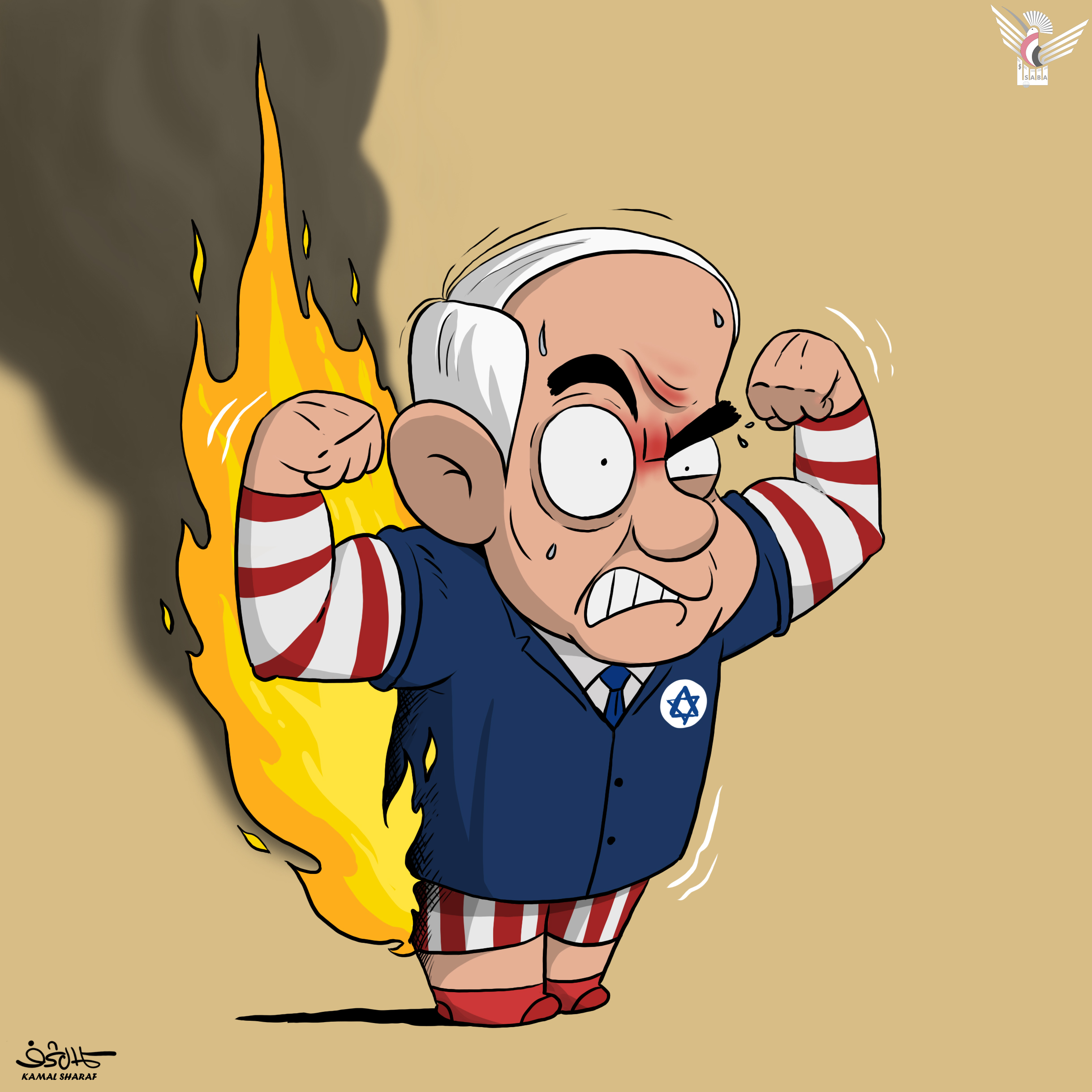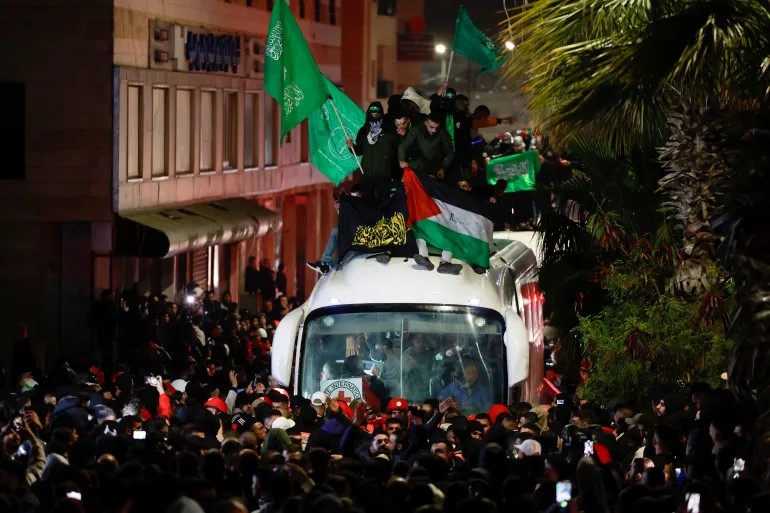Ramallah - Saba:
Beitunia, west of Ramallah witnessed on Monday a large gathering of residents who welcomed the female prisoners who were freed by the resistance in Gaza from the occupation prisons, with hands raising Hamas flags, and throats chanting and cheering for al-Qassam Brigades.
The Palestinian Information Center reported that immediately after their release, the freed female prisoners sent a message of loyalty to the people of Gaza and its resistance for the sacrifices and blood it offered for the sake of their freedom.
Freed Dalal al-Arouri, sister of the martyred leader Saleh al-Arouri, said the blood of the martyrs of Gaza blossomed freedom in the West Bank.
She added freedom is the greatest blessing, and a high price was paid for it and great consolation, but it is for the sake of God.
As for freed Amal Shujaiya, she said all the words of thanks and gratitude are not enough to appreciate the people of Gaza and their sacrifices.
She explained that the female prisoners went through a difficult situation, and were subjected to very bad treatment by the occupation forces before their release.
After embracing her family, freed Hadeel Shatara confirmed that the joy is incomplete without the freedom of the people of Gaza, expressing her mixed feelings between joy for freedom and pain for the blood of the people of the Strip.
She explained that the freedom of the prisoners is expensive, but the freed ones will be worthy of it.
For her part, the journalist and freed prisoner Bushra al-Tawil confirmed the certainty that our victory is from the victory of Gaza and our steadfastness is from the steadfastness of Gaza, which will return better than it was.
She said steadfastness and freedom are irreplaceable, and that the female prisoners were anticipating these moments despite the isolation and the difficulty of receiving news.
Likewise, freed Rasha Hijjawi from Tulkarm expressed her sadness and pain over what the people of Gaza were exposed to and the mixed feelings that she is experiencing in these circumstances.
She said the situation in the occupation prisons is difficult, and there are cases of oppression, shackling, threats with dogs, abuse and very bad treatment.
The resistance was able to free 90 female and male prisoners from the West Bank and Jerusalem, as part of the first phase of the second free men's deal.

| more of (International) |




